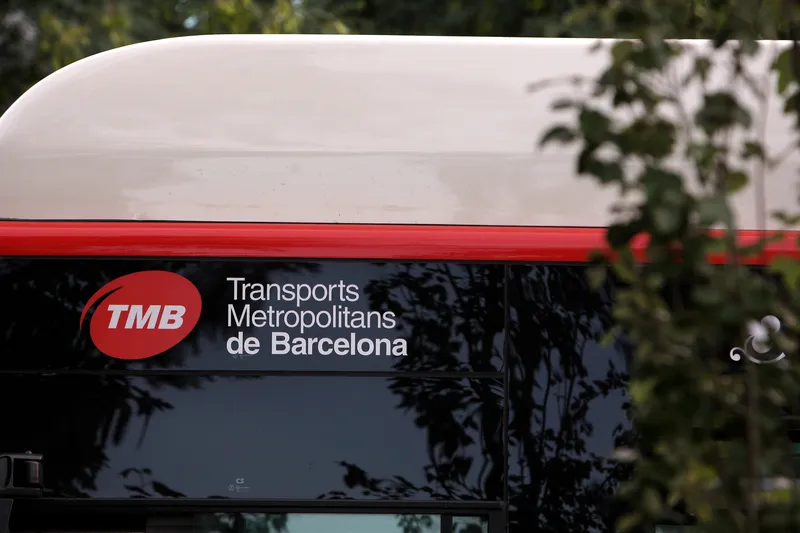Speaking at the Mobile World Congress in Barcelona, Ford president and CEO Mark Fields said that the company will triple engineering investment in driver assist technology, speeding the roll-out of semi automated systems that make it easier to park and drive in heavy traffic as the company continues to expand its Ford Smart Mobility plan.
Fields’ keynote at Mobile World Congress in Barcelona focused on Ford’s transition from an automotive company to an auto and a mobility company through Ford Smart Mobil
February 23, 2016
Read time: 3 mins
Speaking at the Mobile World Congress in Barcelona, 278 Ford president and CEO Mark Fields said that the company will triple engineering investment in driver assist technology, speeding the roll-out of semi automated systems that make it easier to park and drive in heavy traffic as the company continues to expand its Ford Smart Mobility plan.
Fields’ keynote at Mobile World Congress in Barcelona focused on Ford’s transition from an automotive company to an auto and a mobility company through Ford Smart Mobility, the company’s plan to be a leader in connectivity, mobility, autonomous vehicles, customer experience, and data and analytics.
Fields also confirmed that FordPass, the company’s new customer experience platform, debuts this year in Europe. New partners for FordPass include BP and mobile parking payment company Mobile City. FordPass also will integrate Ford Carsharing, run with Germany’s Flinkster Carsharing.7374 Parkopedia, the global database for parking spaces, allows all FordPass members to search for parking, based on location, cost, availability and user ratings. In addition, as an on-street parking payment provider, Mobile City will help to provide a more seamless parking experience by enabling drivers to pay fees through FordPass.
The company has a dedicated team developing driver assist technology that is focused on delivering increasing levels of automation.
Traffic Jam Assist helps the driver with steering, braking and acceleration in heavily congested traffic situations on motorways. Easily activated by pushing a button, the system helps keep the vehicle centred in the lane and brakes and accelerates to keep pace with the vehicle in front.
Fully Active Park Assist will help drivers by steering and controlling the transmission, throttle and brake to seamlessly pull into a parking spot at the touch of a button.
Further semi-autonomous technologies already introduced by Ford include Pre-Collision Assist with Pedestrian Detection, a camera- and radar-based system that detects vehicles and people in the road ahead; and Intelligent Speed Limiter, which could help prevent drivers from exceeding speed limits, and potentially from incurring costly speeding penalties.
“As we look to the future, it is clear we are on the cusp of a revolution in mobility – from car sharing to autonomous driving to the customer experience,” Fields said. “Technology and innovation provide us with the opportunity to address these trends and to make people’s lives better by changing the way the world moves.”
Fields’ keynote at Mobile World Congress in Barcelona focused on Ford’s transition from an automotive company to an auto and a mobility company through Ford Smart Mobility, the company’s plan to be a leader in connectivity, mobility, autonomous vehicles, customer experience, and data and analytics.
Fields also confirmed that FordPass, the company’s new customer experience platform, debuts this year in Europe. New partners for FordPass include BP and mobile parking payment company Mobile City. FordPass also will integrate Ford Carsharing, run with Germany’s Flinkster Carsharing.
The company has a dedicated team developing driver assist technology that is focused on delivering increasing levels of automation.
Traffic Jam Assist helps the driver with steering, braking and acceleration in heavily congested traffic situations on motorways. Easily activated by pushing a button, the system helps keep the vehicle centred in the lane and brakes and accelerates to keep pace with the vehicle in front.
Fully Active Park Assist will help drivers by steering and controlling the transmission, throttle and brake to seamlessly pull into a parking spot at the touch of a button.
Further semi-autonomous technologies already introduced by Ford include Pre-Collision Assist with Pedestrian Detection, a camera- and radar-based system that detects vehicles and people in the road ahead; and Intelligent Speed Limiter, which could help prevent drivers from exceeding speed limits, and potentially from incurring costly speeding penalties.
“As we look to the future, it is clear we are on the cusp of a revolution in mobility – from car sharing to autonomous driving to the customer experience,” Fields said. “Technology and innovation provide us with the opportunity to address these trends and to make people’s lives better by changing the way the world moves.”









